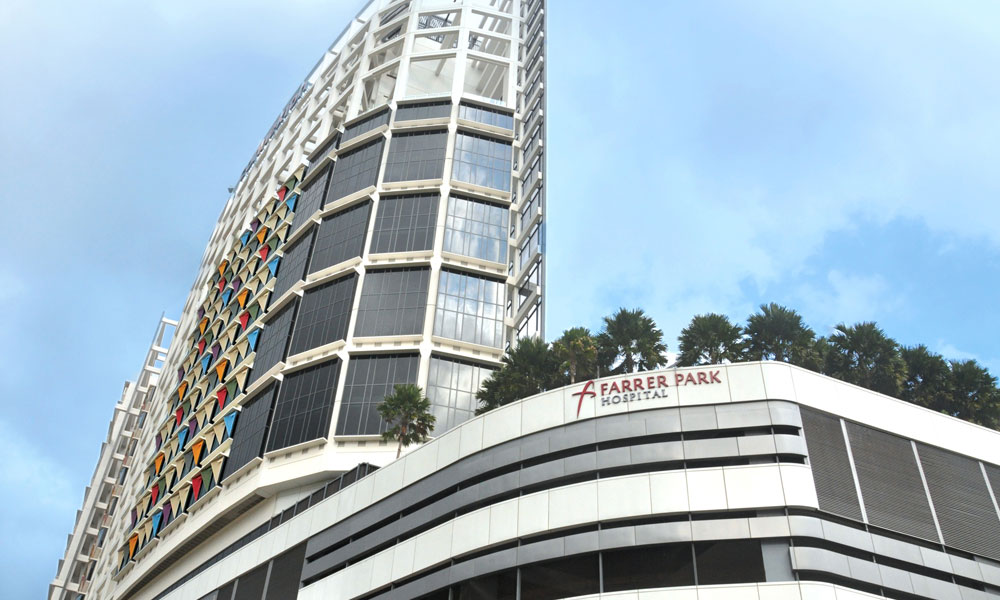Subscribe to our Telegram channel to get a daily dose of business and lifestyle news from NHA – News Hub Asia!
Farrer Park Hospital has introduced the pressurized intraperitoneal aerosolized chemotherapy (PIPAC) treatment for patients with peritoneal cancer, offering this vulnerable group a second chance to achieve better quality of life.
The 30-minute minimally invasive keyhole treatment converts chemotherapy into fine droplets at high pressure when introduced directly into the peritoneal cavity, where major organs such as the stomach and intestines are housed. The pressurized aerosol-like technique allows for even and deeper distribution of the drug; allowing more tumors to be targeted. The procedure is done under a short general anesthesia, and also eases symptoms like abdominal pain and swelling caused by excess fluid in the abdomen.
Advanced cancers of the stomach, ovary, pancreas and colon usually metastasize and spread to the peritoneum. At this stage, surgery to remove these tumors may benefit some patients. However, in the case where the tumors are widespread and is not medically recommended for the patient to undergo surgery, PIPAC can be implemented to shrink the tumors.
In one of the cases performed on a patient in their 60s with peritoneal cancer that had spread from the pancreas, PIPAC was presented as an option to help better manage the disease and symptoms of excessive fluid in the abdomen. PIPAC treatment was planned in between the systemic chemotherapy cycles. The patient was able to restart the systemic treatment soon after PIPAC. Patients are selected on a case by case basis. Similar to other treatments, there are instances where not all patients may qualify or be suitable. In the case where there is blockage of the intestines, PIPAC will not be advised as complications such as perforation may occur.
The silver lining for this treatment is that very little amounts of chemotherapy is absorbed into the bloodstream, translating to minimal post-procedure side effects compared to regular chemotherapy where nausea, vomiting and hair loss are commonly experienced. Patients can also return to normal activities after treatment with no physical or dietary restrictions.
The PIPAC procedure at Farrer Park Hospital is led by Surgical Oncologists Dr. Melissa Teo and Dr. Grace Tan, both of whom have been long-time cancer advocates. They both worked at the National Cancer Centre Singapore previously and when they saw patients with peritoneal disease who were not amenable to surgery in Farrer Park Hospital, they believed that PIPAC could really benefit these patients.
Touching on the treatment and its potential, Dr. Grace Tan explained, “PIPAC gives additional ammunition in our fight against cancer. For surgeons like Dr. Teo and myself, the treatment has also opened up a new avenue for us to provide our patients a chance to better manage the disease and an increased possibility to help them control the cancer, and improve their quality of life.”
In Asia, both National University Hospital and National Cancer Institute of Singapore have reported their outcomes in the Clinical Cancer Research and the European Journal of Surgical Oncology, showing that PIPAC is safe, well-tolerated and potentially effective for patients who have failed standard chemotherapy.
“While it’s still new, PIPAC’s results are promising. The availability of the treatment attests to our hospital’s constant efforts to provide comprehensive treatment options that support our cancer patients’ health goals and aspirations,” said Dr. Peng Chung Mien, Chief Executive Officer of Farrer Park Hospital.

